Following The Film Stage’s collective top 50 films of 2024, as part of our year-end coverage, our contributors are sharing their personal top 10 lists.
2024 saw the flicker of a major flame in the strands of cinema that have my heart the most.
It was a year where sex, romance, and representation were back on the menu in exciting new configurations, mirrored behind the camera and in front of the screen. Films that made us feel, self-reflect, introspect, change our minds, and realize. In a sociopolitical climate increasingly intent on sidelining and disavowing empathy at every turn, it’s comforting to know that we are not immune to movies.
Favorite Big Screen Rediscoveries: Zerophilia, Moving, Bumpkin Soup, Manji, Their Last Love Affair
Honorable Mentions: Caught by the Tides, Summer Solstice, Gift, Ghost Cat Anzu, You Burn Me
10. Happyend (Neo Sora)
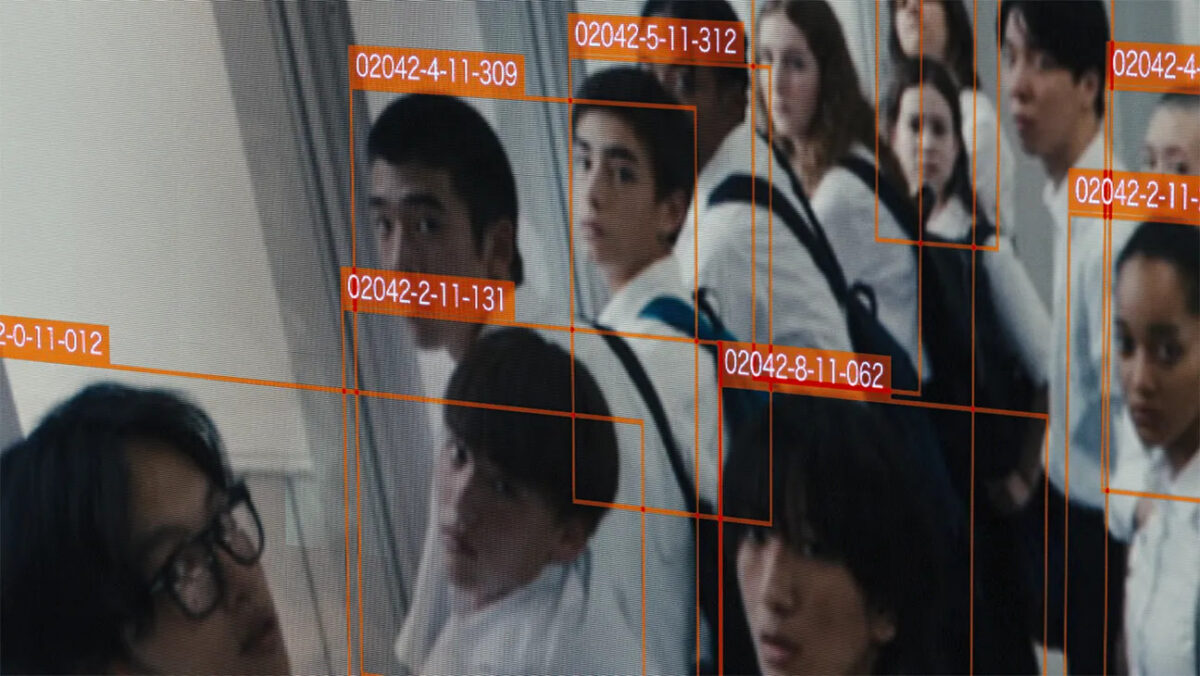
In 2024, Japanese cinema began to travel and shift in new ways. The Tokyo International Film Festival invited Western outlets to attend and cover the festival. Projects such as Neu Mirrors and The Killer Goldfish turned to crowdfunding to make their films on their terms. The masterful films of Shinji Somai have continued their international emergence with new restorations of Moving and P.P. Rider. Amidst all this buzz comes Neo Sora’s Happyend. It’s a film with a different tempo to the rest at the fests, electrifying and elegiac in equal measure.
In a landscape where many filmmakers are taking influence from Somai, Sora might be our first true spiritual successor to his cinema, Happyend operating as a ‘Shin Typhoon Club’ of sorts. An admirer of Edward Yang, Sora also works with light and shadow beautifully. He values silences and the city. The after-dark cityscape is illuminated by Lia Ouyang Rusli’s breathtaking, hair-raising score, which echoes that of Akira and Koyaanisqatsi.
Sora doesn’t show us a Tokyo for a domestic audience, he shows us an international space for an international audience, captured with an international lens. It’s cinema of the soul, of the heart— of the collective, whilst also honouring and championing the individual. Happyend moves me greatly, and I’m excited to see what its groundbreaking director does next.
9. Trap (M. Night Shyamalan)
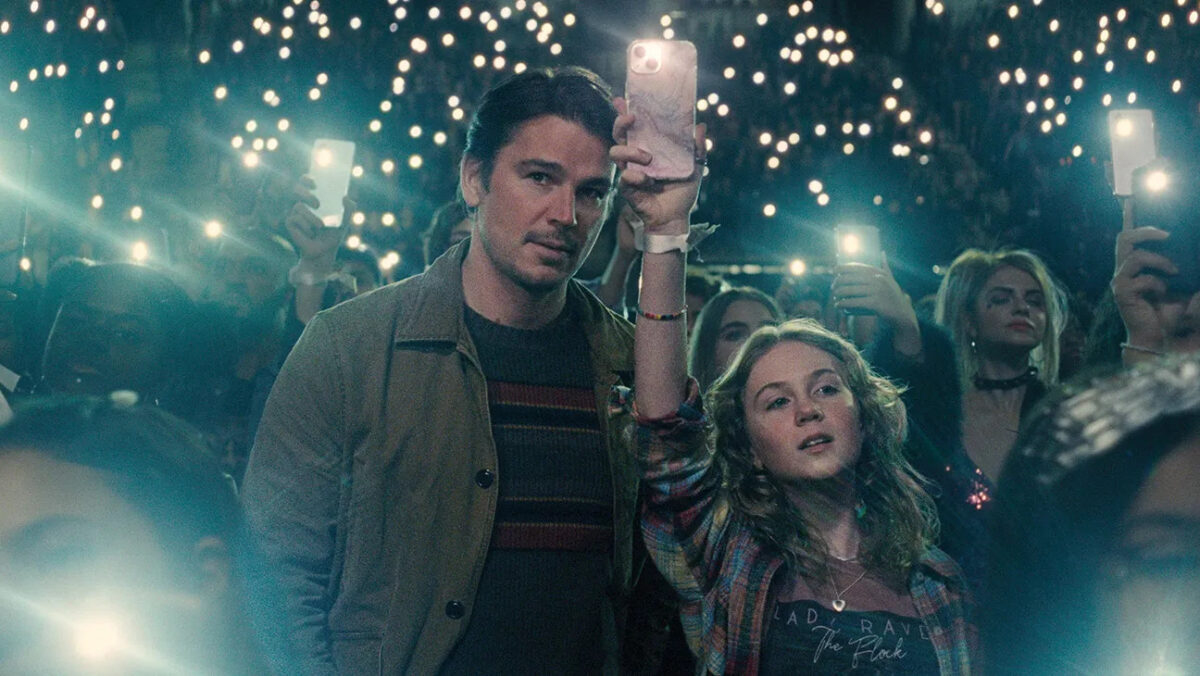
In its first act, Trap is meticulously calculated, satisfyingly slick. Then the execution gets sloppy. It’s a typical deflation for a Shyamalan film, but here the form matches the theme, as nothing goes to plan for Josh Hartnett’s compelling sociopath.
The power plays are taken back to the family home, where the tensions remap to revealing ends. An exhilaratingly accurate and unflinching screen exploration of the narcissistic parent, Trap captures pop fandom, the concert film, parasocial surrogacy, and the fatal flaws of patriarchy. One of the most daring and thematically bold mainstream films in years, Trap demonstrates that monsters don’t exist, only men.
8. Black Box Diaries (Shiori Itō)
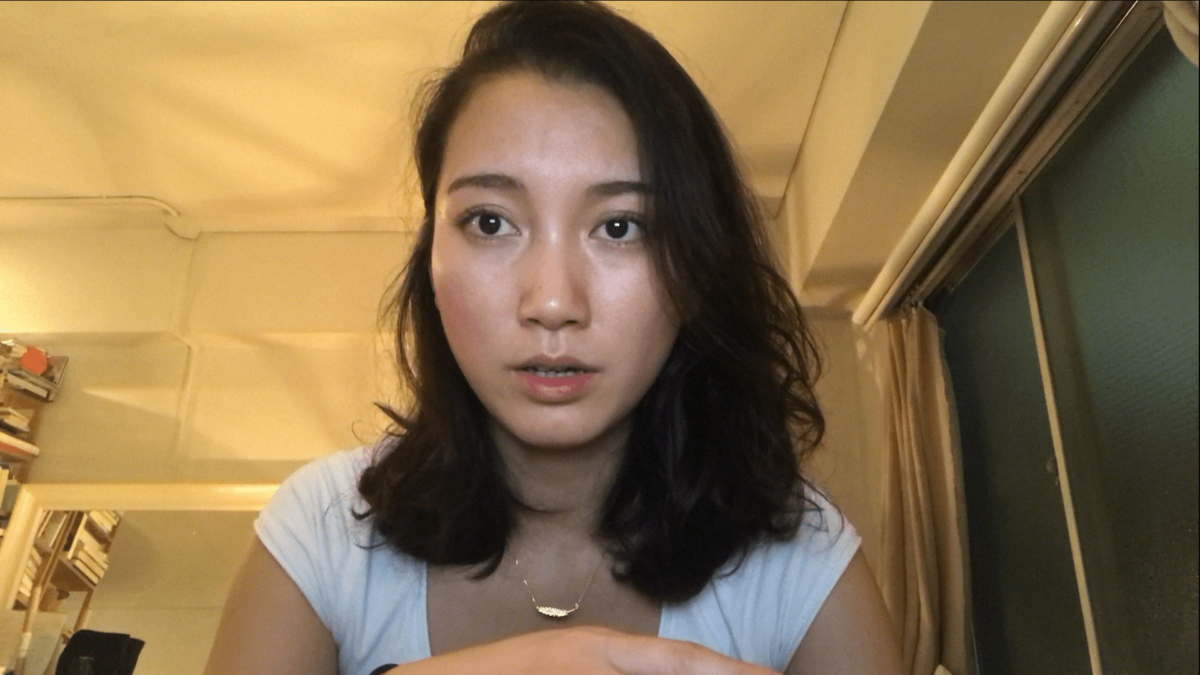
To call journalist Shiori Itō ‘brave’ would be to undersell her. Itō made waves in 2017 when she spoke out about her rape case against Noriyuki Yamaguchi, then-head of the Tokyo Broadcasting System. Waiving anonymity and putting yourself in the public eye makes one vulnerable, but Itō refuses to be boxed in, exploring beyond the reportage of her book and courageously reshaping her screen image into something whole.
She keeps her front-facing camera on through horrific legal setbacks, moments of immense trauma. To watch Itō suffer is near-unbearably upsetting. Then she shows us everything else. The rest of her day, her allies, her friends, her joy. She dances, we dance with her.
Black Box Diaries broke my heart, pushing me through anger, devastation, and despair, but it left me with a warm smile. Change is underway, and better days are ahead in Japan and abroad. Shiori Itō is brave, yes, but, more than that, she is deeply inspiring.
7. Challengers (Luca Guadagnino)

Simply put, Challengers fucks. A much-needed shot in the arm for the mainstream, Challengers presents the tennis court as the bedroom and the stands as the cuck chair. Closer for sporty bisexuals, it’s a deeply silly crowd-pleaser in which fujoshi fantasies are indulged and tense arguments are drowned out by comically pulsating techno.
They’re delightfully sharp feuds. Justin Kuritzkes’ economical, winking dialogue is delivered by the film’s central trio with exquisitely-timed, emotionally believable shots. And that glorious Reznor and Ross score ascends to a new level in the film’s climax when the blood starts flowing— teasing and edging till it builds to an orgasmic crescendo that gifted me the biggest shit-eating grin of the year. What a serve.
6. Red Rooms (Pascal Plante)
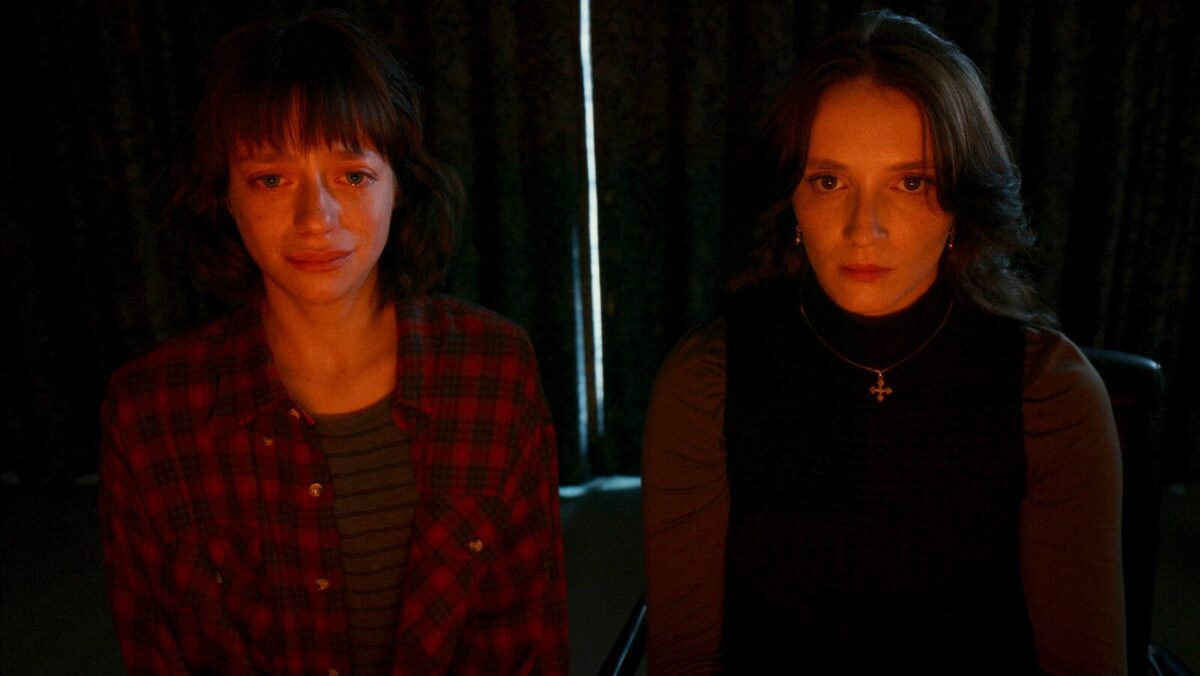
An indictment of ‘True Crime’ and the queasiest a film has made me feel since Skinamarink, Red Rooms’ free-floating thesis is effectively grounded by Juliette Gariépy’s jaw-droppingly muscular and unnervingly recognizable central performance. The Bonello-adjacent descendant of Haneke’s redirected surveillance, Pascal Plante’s gloriously insidious film is an exploration into the deepest darkness of our curiosities, unraveling as Trenque Lauquen‘s evil twin. It also boasts the most delicious needle drop of the year. Dead dove, do not eat.
5. Self-Revolutionary Cinematic Struggle (Gakuryu Ishii)
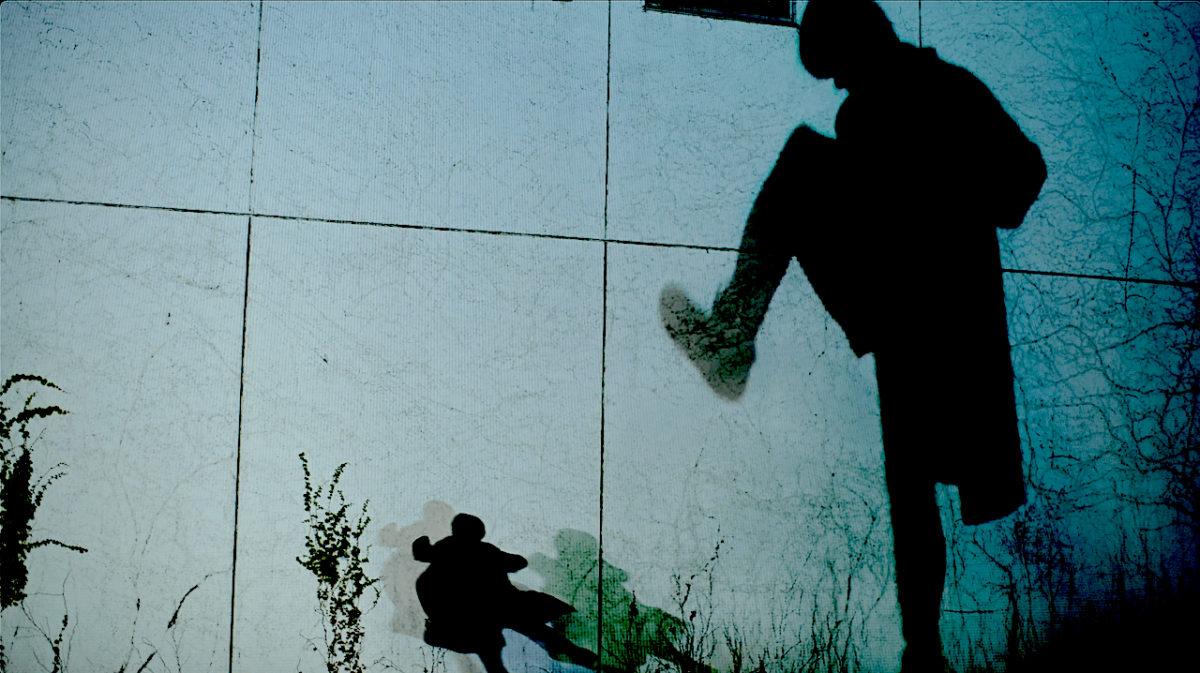
A prismatic exploration of cinema, collaboration, and community, Gakuryu Ishii’s Self-Revolutionary Cinematic Struggle is the one film on this list that you won’t have seen.
Shot at Kobe University, where the punk auteur recently lectured in Film Studies, Ishii’s students and faculty star as themselves. Experiencing a unique cineliterary psychosis, their lecturer has vanished from campus, leaving them to dig through the pieces of his manifesto.
What follows is a series of artistic exercises, formalist reflections, and movement sequences, both meditative and immersive. One second a student is reciting a monologue from Shinji Somai’s Typhoon Club, the next they’re clambering into a coffin-like pod and putting on a VR headset. Ishii places the past and future of cinema in perfect balance, spotlighting the present through his film’s duration and its terms of exhibition.
Ishii intends this film solely for cinema presentation, conditional on 4K projection and 5.1 sound. A year on from its domestic release, we gave this 2-hour 40-minute epic its International Premiere at the inaugural London International Fantastic Film Festival. As the film teaches us, cinema is a collective action. I call on friends, peers, and programmers across the globe to reach out to Ishii and consider screening this film. It’s one of the most monumental works of the century thus far.
4. Matt and Mara (Kazik Radwanski)
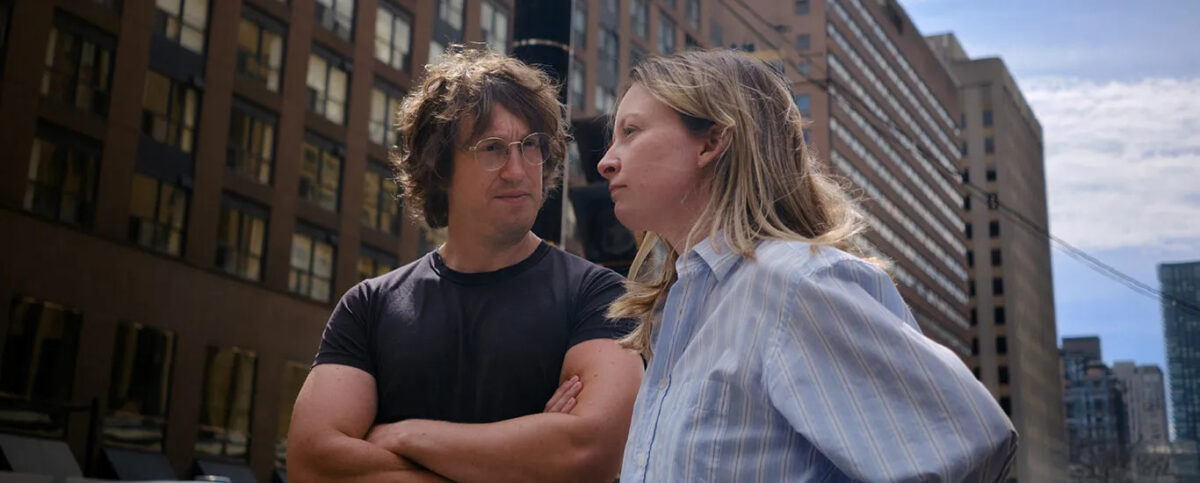
Cinema is about looking. The filmmaker’s challenge is to hold our gaze on a screen for a significant duration, to give us something to watch, something to think about. Kazik Radwanski’s sensitive and delicate friendship dramedy Matt and Mara presents us with looking itself as its subject. Deragh Campbell and Matt Johnson’s starry, relaxed gazes when the other isn’t looking say more than any of the film’s charming, semi-improvised dialogue can. There’s a complex love in those eyes, and we know it well. When I watch Matt and Mara, I’m watching me watching you.
3. The Other Way Around (Jonás Trueba)
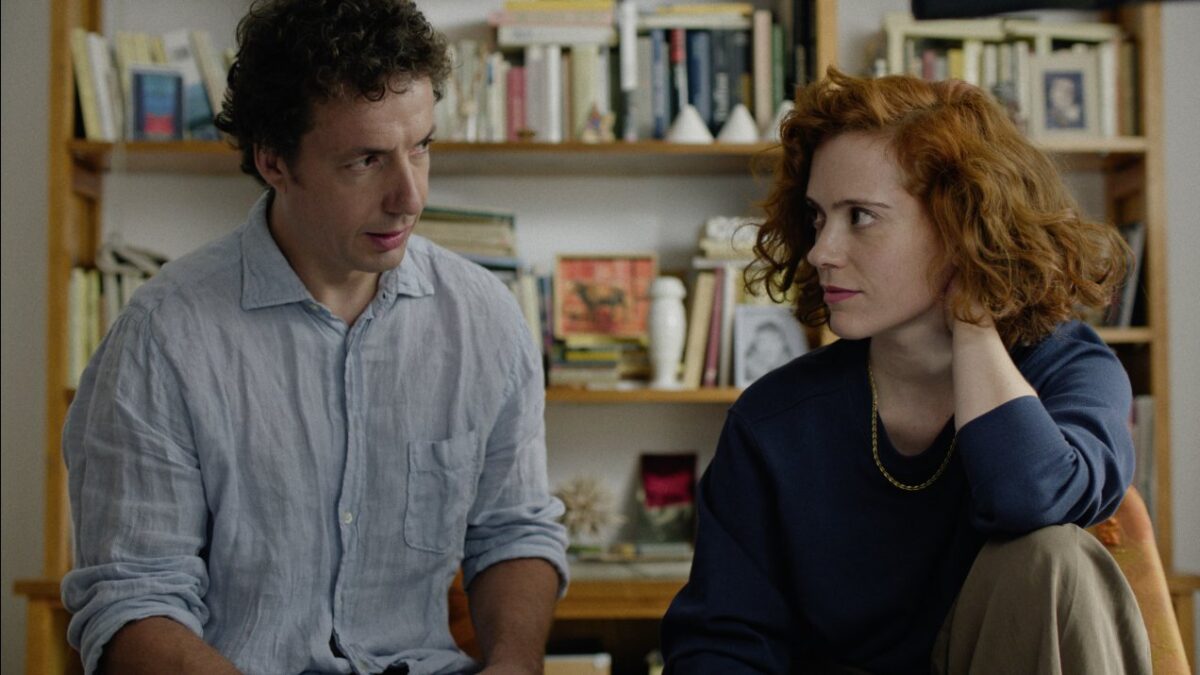
Ale (Itsaso Arana) and Alex (Vito Sanz) are throwing a party to celebrate their relationship. Typically, this is what is known as a wedding, but no, what they’re thinking is The Other Way Around. The couple are separating, and they’re in relaxed, jovial spirits about it— much to the bafflement and concern of their close friends. It’s a beautifully simple setup that Trueba and company run with as the film’s single, very good joke. As the couple collaborate, in separation and in their creative pursuits, they grow inadvertently closer, their magnetism bolstered by the beautifully understated chemistry of the film’s leads.
The Other Way Around is a delight, marrying the bashful attractions of Emmanuel Mouret’s films with the warmly romantic metatexts of El Pampero Cine. My runaway favorite of 2024’s London Film Festival, I was pleased to find myself in good company in the end-of-year lists: the critics of Cahiers du Cinema and, perhaps more pertinently, Whit Stillman. Cheers— to love.
2. Super Happy Forever (Kohei Igarashi)
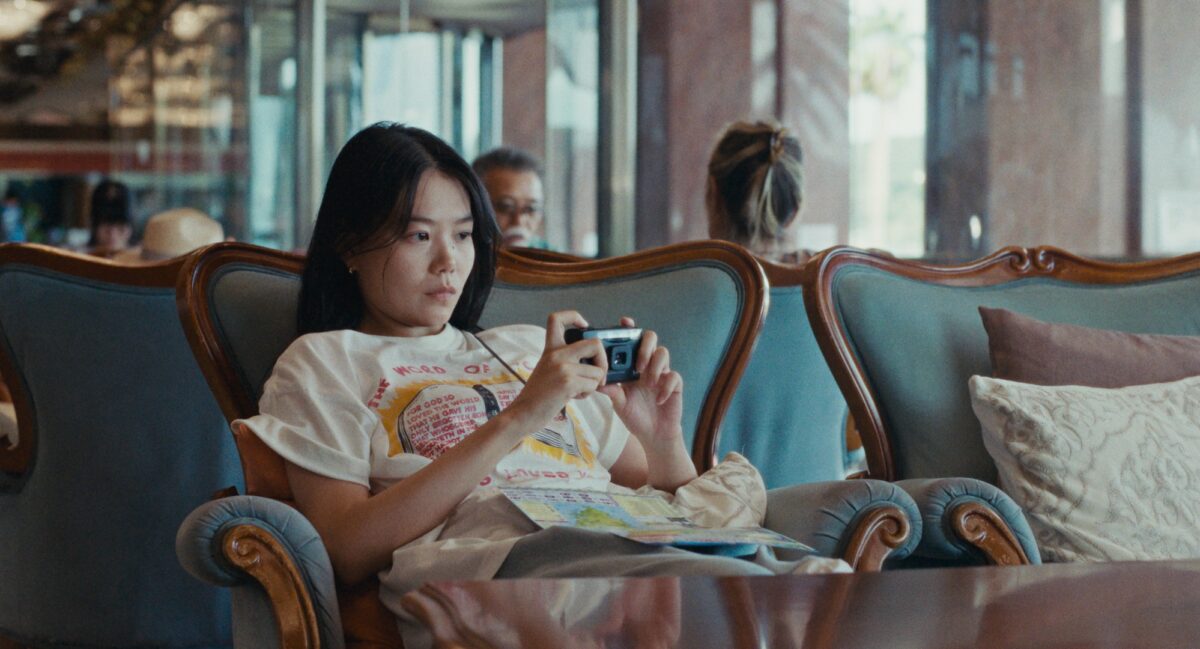
A cool sea breeze provides a breath of fresh air. Super Happy Forever sidesteps the expected Japanese romantic drama approach to memory, opting instead for a wistful and character-focused stroll along the shores of time. Taking a similar snapshot approach to Aftersun, but imbued with an exhilarating formalism reminiscent of filmmakers such as Jia Zhangke and Hong Sangsoo, Super Happy Forever is a special film, and the most profoundly romantic this year. We can’t turn back time— we lose things, and we lose people— but there’s always healing and resolution to be found in retracing our steps. I’ll be returning to Super Happy Forever for years to come.
1. I Saw the TV Glow (Jane Schoenbrun)
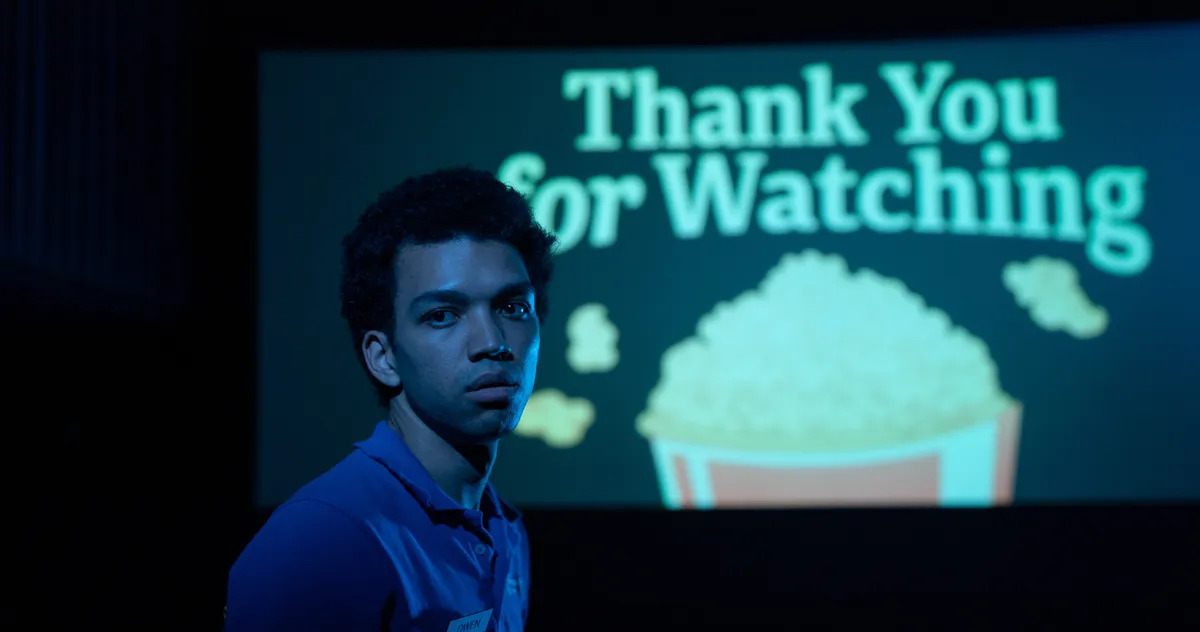
Jane Schoenbrun’s cinematic autopsy of repression and denial rocked my 2024 like no other film. It’s the rarest, most precious kind of outsider art, arriving feeling fully realized, whole— carrying imperfections, but sculpted such that it’s as if it couldn’t have been any other way.
This was a year where transgender people’s rights were debated and jeopardized, with a horrifying disregard for their autonomy and humanity. Amidst that moment, queer filmmakers carved their own fresh, intrinsically trans film grammar. Schoenbrun’s comes screaming from the soul, raw, true.
Every atom of this film is visceral. When I think about I Saw the TV Glow, I get chills, I tear up, I cry. I remember its images so vividly because I have felt them too.
A warm glow gives way to a harsh flicker. I Saw the TV Glow holds you in its nostalgic, comforting embrace and hurts you brutally. It is a film that doesn’t placate with making you feel seen, with validating and uplifting— instead holding up a mirror from which your true self looks back, pleading for acceptance. Schoenbrun refuses to let you leave the theater without discovering, with bone-chilling intensity, what it is to be trapped, what it is to grow wrong, what it is to feel dysphoria. I Saw the TV Glow is formally and sensorily honest, projecting what few can find words for.
I Saw the TV Glow is one of a few films this year that will be canonized, that will rightfully be deemed important. Others are Bertrand Bonello’s The Beast and Ryusuke Hamaguchi’s Evil Does Not Exist (neither of which feature on this list, as I saw them in 2023).
Most of all, I Saw the TV Glow tops my 2024 list because it’s important to me. Our relationships to cinema are deeply personal and often indefinable. I come to this place to feel, and to learn more about myself and those around me. I Saw the TV Glow cracked me open, illuminating a self that I’ll forever sit in dark rooms to better understand.
As for those who didn’t get it, well— there is still time.
